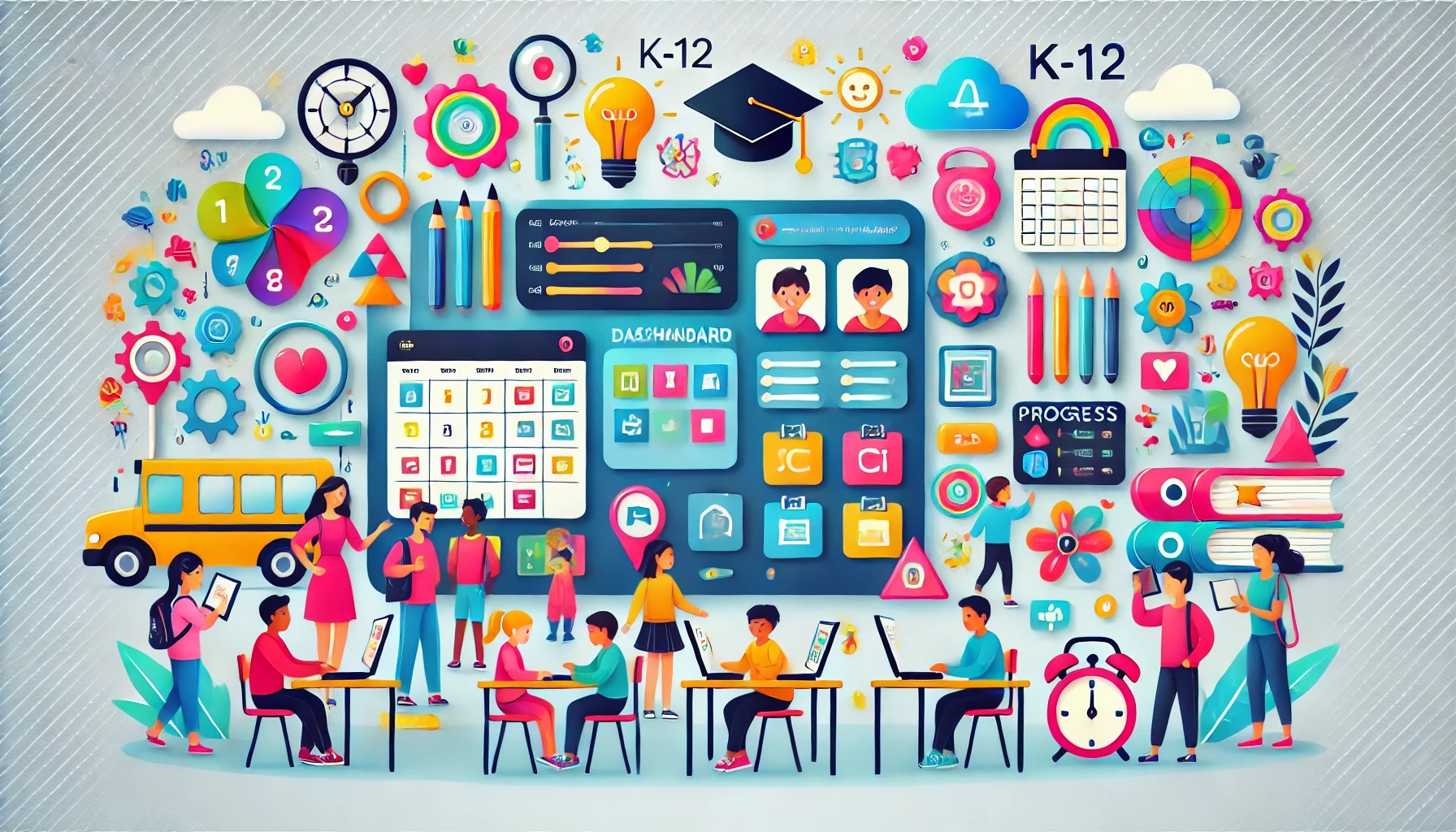K12 Learning Management System: Unlocking Potential in 2025
Education is evolving, and digital transformation is reshaping the way students learn and teachers teach. One of the most significant innovations in this space is the K12 Learning Management System (LMS). Designed specifically for K-12 institutions, these platforms enhance teaching methodologies, streamline administrative tasks, and promote a collaborative learning environment.
In this blog, we’ll explore the benefits, features, and impact of K12 LMS platforms and address frequently asked questions to help you understand how they can transform education.
What is a K12 Learning Management System?
A K12 Learning Management System is a software platform that facilitates online education and classroom management for kindergarten through 12th-grade students. It integrates tools for curriculum delivery, student assessment, communication, and administrative management in one centralized system.
These platforms provide:
Flexible Learning Options: Access to educational content anytime, anywhere.
Personalized Education: Tailored resources to suit individual student needs.
Enhanced Collaboration: Tools for interaction between students, teachers, and parents.
Data-Driven Insights: Real-time analytics to track student performance.
Key Features of a K12 Learning Management System
User-Friendly Interface Intuitive design ensures that students, teachers, and parents can navigate the platform effortlessly.
Interactive Content Multimedia resources like videos, quizzes, and gamified lessons engage students and make learning fun.
Assessment Tools Automated grading, custom quizzes, and progress tracking streamline the evaluation process.
Communication Channels Built-in messaging, forums, and video conferencing enable seamless interaction among stakeholders.
Integration with Other Tools Compatibility with tools like Google Classroom, Microsoft Teams, and third-party apps expands functionality.
Accessibility Mobile compatibility and multilingual support ensure that all students can participate.
Benefits of a K12 Learning Management System
Adopting a K12 LMS offers numerous advantages:
1. Improved Academic Outcomes
Personalized learning paths help students grasp concepts at their own pace, boosting retention and understanding.
2. Streamlined Administration
Automated attendance, grading, and reporting save educators valuable time.
3. Parental Engagement
Parents can monitor their child’s progress and communicate with teachers through the platform.
4. Cost-Effective
Reduces the need for physical resources like textbooks and paper, making it an eco-friendly option.
5. Adaptability to Hybrid Learning
Supports both in-person and online learning, making it ideal for unpredictable scenarios.
Choosing the Right K12 LMS
When selecting a K12 Learning Management System, consider the following factors:
Ease of Use: Ensure the platform is intuitive and requires minimal training.
Customization: Look for a system that aligns with your institution’s unique requirements.
Scalability: The LMS should grow with your school’s needs.
Security: Verify data encryption and compliance with regulations like FERPA.
Support and Training: Opt for providers that offer robust customer support and training resources.
Frequently Asked Questions (FAQ)
1. What is the primary purpose of a K12 LMS?
A K12 LMS simplifies teaching and learning by providing a centralized platform for content delivery, assessment, and communication.
2. Can a K12 LMS support hybrid learning?
Yes, most K12 LMS platforms are designed to facilitate both online and in-person learning seamlessly.
3. Is it difficult to implement a K12 LMS?
Modern K12 LMS platforms are user-friendly and come with training resources, making implementation straightforward.
4. How does a K12 LMS enhance student engagement?
Interactive features like gamified lessons, multimedia content, and instant feedback keep students motivated.
5. Are K12 LMS platforms secure?
Reputable platforms prioritize security with measures like data encryption, user authentication, and compliance with educational regulations.
Conclusion
A K12 Learning Management System is more than just a tool; it’s a gateway to modern education. By fostering personalized learning, enhancing collaboration, and simplifying administrative tasks, K12 LMS platforms empower educators to focus on what matters most—nurturing young minds.
If your school hasn’t adopted a K12 LMS yet, now is the time to explore the possibilities. Transform education and unlock the potential of every student with the power of technology.




Comments
Post a Comment